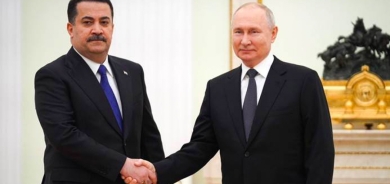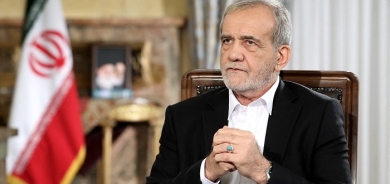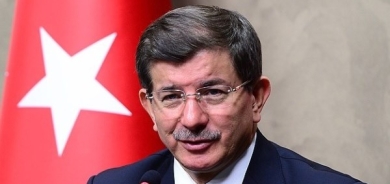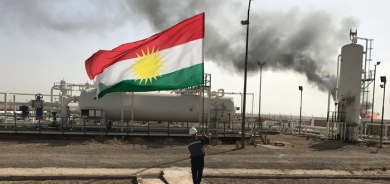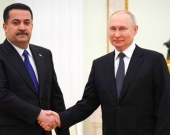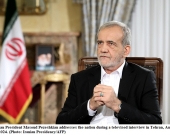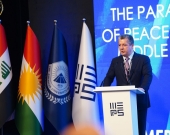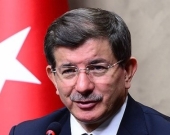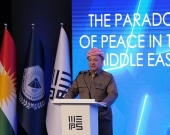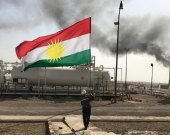West urges U.N. Security Council to end neglect, act on Syria

Western officials were speaking a day before the 15-nation council holds a key meeting to consider the Arab plan, but faced reluctance from Damascus’s ally Russia, a veto-holder in the council that has demanded changes in a proposed resolution.
U.S. Secretary of State Hillary Clinton said the U.N. Security Council “must act” to end President Bashar al-Assad’s “violent and brutal attacks” against demonstrators after adopting not a single resolution since the protests erupted in March last year.
Clinton said she would travel to the United Nations on Tuesday to “send a clear message of support to the Syrian people -- we stand with you.”
“We have seen the consequences of neglect and inaction by this council over the course of the last 10 months, not because the majority of the council isn’t eager to act - it has been,” Washington’s U.N. Ambassador Susan Rice told reporters.
“But there have been a couple of very powerful members who have not been willing to see that action take place,” she said. “That may yet still be the case.”
Rice was referring to Russia and China, which vetoed a European-drafted Security Council resolution in October that would have condemned Syria for its bloody crackdown on anti-government protests and threatened it with possible sanctions.
The Syrian opposition flatly rebuffed a Russian call for talks with Assad’s regime as violence across Syria killed 53 people, 35 of them civilians, activists said.
Opposition refuses talks
On Sunday, 80 people were reportedly killed, equally divided between military and civilian deaths, in the most intense clashes since the 10-month-old uprising began, the Syrian Observatory for Human Rights said.
The latest spike in violence, on top of what the United Nations said at the start of January already added up to 5,400 killings, pushed the Arab League to suspend a much criticized observer mission to Syria on Saturday.
French Foreign Minister Alain Juppe too is to head to New York on Tuesday to press the Security Council into taking action over the Assad regime’s “crimes against humanity,” his ministry said.
Foreign ministry spokesman Bernard Valero said a ministerial meeting at the U.N. on Tuesday would allow the Security Council to listen to the Arab League’s report on the situation in Syria.
The Foreign Office in London said that Foreign Secretary William Hague would also go to the Security Council, although Juppe admitted that “conditions aren’t yet right to get a resolution passed, because Russia is still reluctant.”
Russian Deputy Foreign Minister Gennady Gatilov said the latest draft tabled by Morocco on Friday was little different to one Moscow and Beijing vetoed last October.
“The current Western draft has not gone too far from the October version, and, certainly, cannot be supported by us,” Gatilov told Interfax news agency in an interview.
“The draft has statements in it calling on the member states to stop arms deliveries to Syria,” he said.
Moscow, which has close ties with its Soviet-era ally and remains one of its key arms suppliers, said earlier that Damascus had agreed to its offer to host talks with opposition representatives.
But the head of the Syrian National Council (SNC) said that the opposition rejects all talks with the Damascus regime until Assad steps down.
“The resignation of Assad is the condition for any negotiation on the transition to a democratic government in Syria,” Burhan Ghalioun told AFP.
The position was echoed by the second largest opposition grouping, the Syrian National Coordination Committee for Democratic Change.
“Any negotiation or meeting is inconceivable in the shadow of the growing violence and killings, and the persistent arrests,” its leader Hassan Abdel Azim told AFP.
Determined to regain control
Regime forces, who were reported to have executed a founder of the rebel army, appeared determined to wrest back control of Damascus suburbs which have intermittently fallen into the hands of the rebels.
Near the capital, troops penetrated Rankus, 40 kilometers (25 miles) north of the capital, after having shelled the town which the army had encircled for the past six days, the Observatory said.
Activists at the scene said rebel troops pulled out of Rankus as the army moved in, while, in the eastern suburbs, snipers were “shooting at everything that moves” in Irbin and Hammuriyeh.
The SNC warned of the potential for a massacre in Rankus after hundreds of young men were rounded up by security forces.
“They have imposed a siege on Rankus, preventing food and medical aid from entering” the town of 25,000 inhabitants, it said in a statement received in Nicosia.
Elsewhere in Syria, the Observatory said at least 20 civilians were killed when security forces stormed the flashpoint central city of Homs, among them a doctor and a young girl.
Five civilians were killed in the Damascus suburbs and one in Idlib province in the northwest.
An ambush by deserters killed six loyalist troops in Daraa province, south of the capital. Two more were killed in Idlib.
A total of 10 rebel soldiers were also killed -- four in Daraa, two in Homs, two in Idlib and two in Rankus, the Britain-based watchdog added.
(Reuters)

